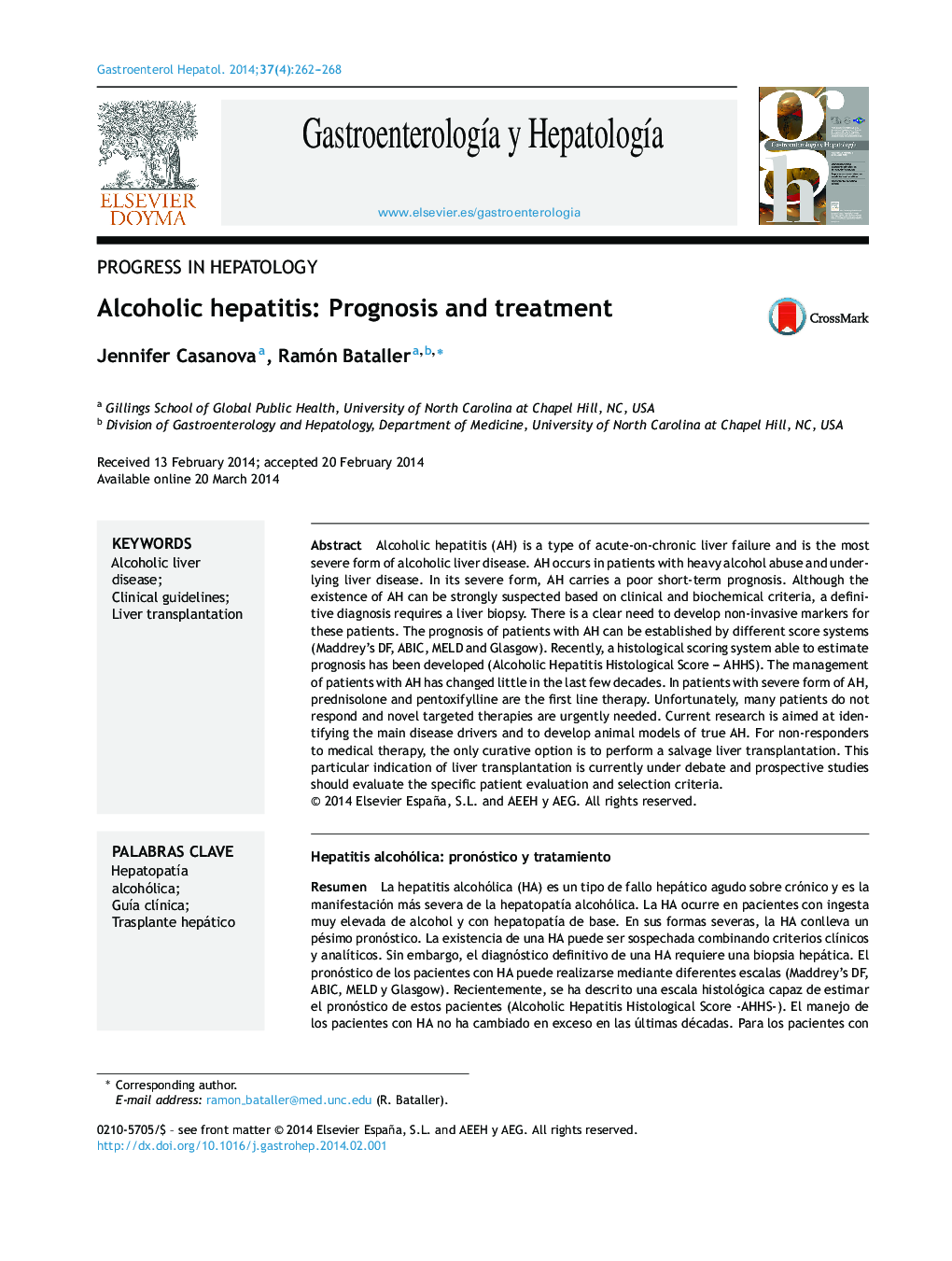| Article ID | Journal | Published Year | Pages | File Type |
|---|---|---|---|---|
| 3288161 | Gastroenterología y Hepatología | 2014 | 7 Pages |
Alcoholic hepatitis (AH) is a type of acute-on-chronic liver failure and is the most severe form of alcoholic liver disease. AH occurs in patients with heavy alcohol abuse and underlying liver disease. In its severe form, AH carries a poor short-term prognosis. Although the existence of AH can be strongly suspected based on clinical and biochemical criteria, a definitive diagnosis requires a liver biopsy. There is a clear need to develop non-invasive markers for these patients. The prognosis of patients with AH can be established by different score systems (Maddrey's DF, ABIC, MELD and Glasgow). Recently, a histological scoring system able to estimate prognosis has been developed (Alcoholic Hepatitis Histological Score – AHHS). The management of patients with AH has changed little in the last few decades. In patients with severe form of AH, prednisolone and pentoxifylline are the first line therapy. Unfortunately, many patients do not respond and novel targeted therapies are urgently needed. Current research is aimed at identifying the main disease drivers and to develop animal models of true AH. For non-responders to medical therapy, the only curative option is to perform a salvage liver transplantation. This particular indication of liver transplantation is currently under debate and prospective studies should evaluate the specific patient evaluation and selection criteria.
ResumenLa hepatitis alcohólica (HA) es un tipo de fallo hepático agudo sobre crónico y es la manifestación más severa de la hepatopatía alcohólica. La HA ocurre en pacientes con ingesta muy elevada de alcohol y con hepatopatía de base. En sus formas severas, la HA conlleva un pésimo pronóstico. La existencia de una HA puede ser sospechada combinando criterios clínicos y analíticos. Sin embargo, el diagnóstico definitivo de una HA requiere una biopsia hepática. El pronóstico de los pacientes con HA puede realizarse mediante diferentes escalas (Maddrey's DF, ABIC, MELD y Glasgow). Recientemente, se ha descrito una escala histológica capaz de estimar el pronóstico de estos pacientes (Alcoholic Hepatitis Histological Score -AHHS-). El manejo de los pacientes con HA no ha cambiado en exceso en las últimas décadas. Para los pacientes con formas severas, los tratamientos de primera línea son la prednisolona y la pentoxifilina. Desgraciadamente, muchos pacientes no responden y nuevas terapias moleculares son necesarias. En la actualidad, la investigación se centra en la identificación de los responsables moleculares de esta enfermedad y en el desarrollo de modelos animales de HA. Para los pacientes que no responden a la terapia médica, la única opción curativa es realizar un trasplante hepático. Esta indicación de trasplante está en debate en la actualidad y estudios prospectivos deberían determinar los criterios de evaluación y de selección de estos pacientes.
